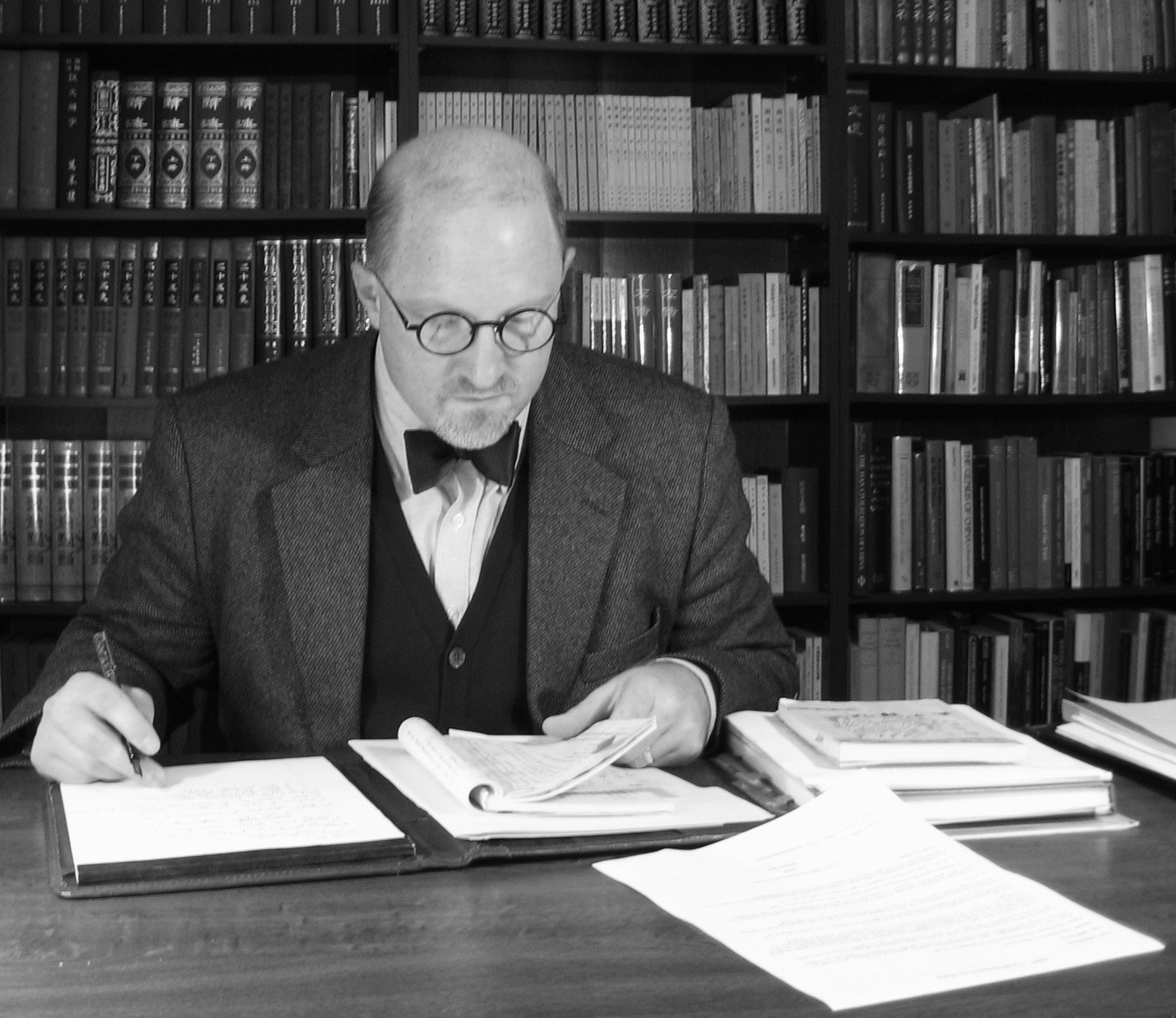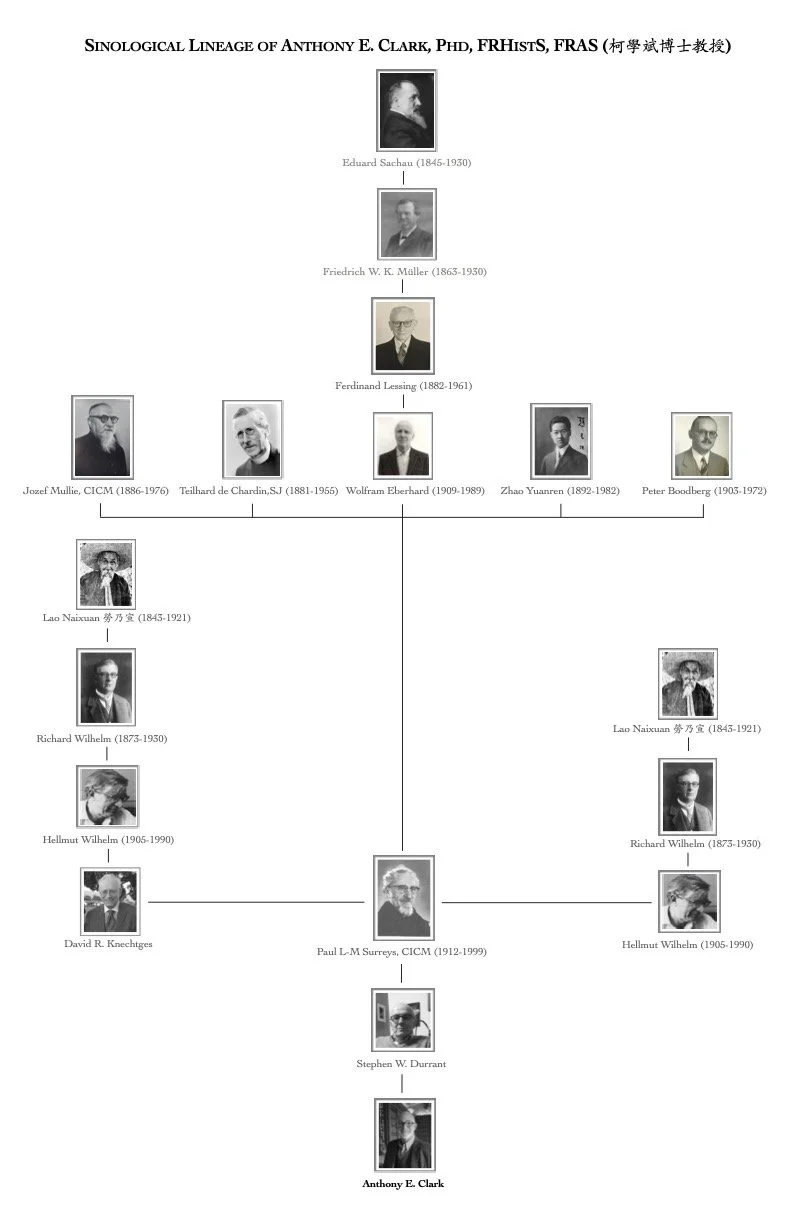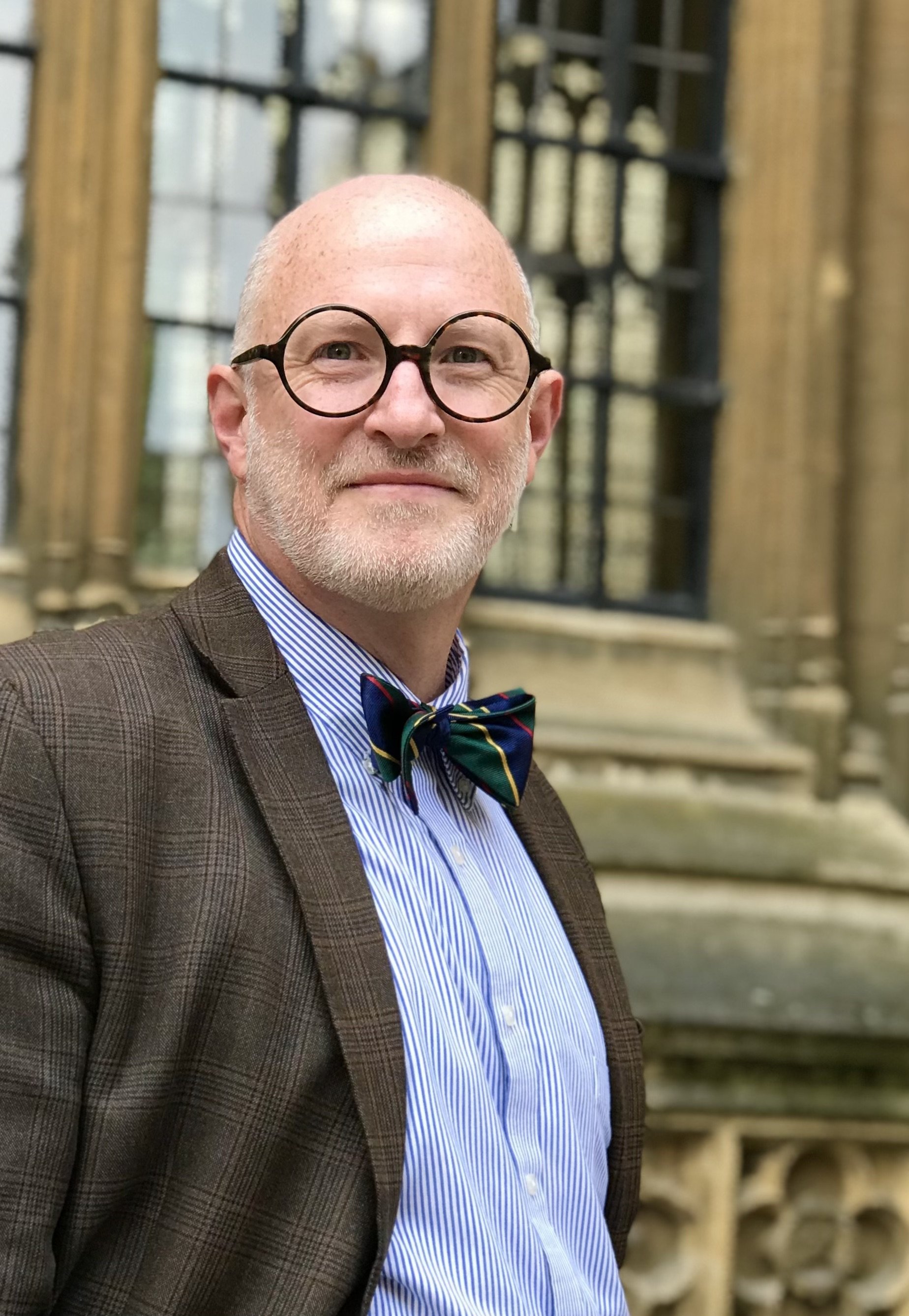Teaching China’s Past
Brief Biography:
Anthony E. Clark received his BA and PhD from the University of Oregon, where he focused on Chinese language, literature, and history. He has also studied at the Central University for Nationalities/Minzu University of China in Beijing, China, Alliance Française in Paris, France, and the National Taiwan Normal University in Taipei, Taiwan. He was born on 12 March 1967 in Eugene, Oregon. In addition to a brief stay at Mount Angel Abbey and Seminary and two years of study at the Byzantine Catholic Seminary of Saints Cyril and Methodius, he studied and taught Chinese martial arts such as Yang Style Tai Chi and 7-Star Northern Praying Mantis Kung Fu from 1979 until 1995. He began his advanced studies of classical Sinology under Stephen W. Durrant, a scholar of the Han dynasty historian, Sima Qian, at the University of Oregon. Clark's scholarly interest while studying at Oregon centered on the early Han dynasty historian, Ban Gu, and also on the history of Sino-Western interactions, especially in the area of Roman Catholic missionary exchange with Chinese intellectuals during the late Qing. He developed an interest in the Sino-Missionary conflicts between local Chinese martial artists and Roman Catholic missionaries during the Boxer Uprising, which led to the publication of China's Saints: Catholic Martyrdom during the Qing (1644-1911) and Heaven in Conflict: Franciscans and the Boxer Uprising in Shanxi. Clark's interest in the history of how women participated in important historical transitions during the late-imperial China also inspired him to dedicate much of Heaven in Conflict to the role of female Boxers, known as Red Lanterns (Boxer Uprising), in the events of the Boxer incidents at Shanxi in 1900. In 2019, Clark published the first scholarly study of the famous Xishiku Roman Catholic cathedral in Beijing and its architect, Alphonse Favier, China Gothic: The Bishop of Beijing and His Cathedral. This is the only Christian church in Beijing to have survived in Beijing through the Boxer Uprising in 1900, and since 1984 it is protected as one of China’s national cultural relics. In 2020, a compendium of his essays was published that highlights Clark’s observations while conducting research and writing in China, entitled China’s Catholic in an Era of Transformation: Observations of an “Outsider.” After consulting the Jesuit materials held in the Vatican Secret Archives, the Vatican Apostolic Archives, and the archives of the Society of Jesus at the Roman curia, Clark published a translation and study of Giulio Aleni’s children’s primer entitled, A Chinese Jesuit Catechism: Giulio Aleni’s Seventeenth-Century Four Character Classic 四字經文 in 2021. In 2025, he published the first monograph study of Jesuit religious theater in China and its connections to the commemoration of the Society's martyrs of the late Qing, entitled Staging China: Jesuit Theater and the End of an Empire. This work was written while Clark was the George Combe Fellow (Combe Trust) at the Institute for Advanced Studies in the Humanities (IASH), University of Edinburgh.
After receiving his first academic appointment at The University of Alabama in 2005, Clark published his first book on Han dynasty historiography, and then turned to his main scholarly focus, which is the history of Christian missions in China. Clark's scholarly publications on Christianity in China have combined his Sinological training in early Chinese texts and his training in late-imperial Sino-Western exchange to analyze how traditional Chinese religious and philosophical views have intersected with those views that were imported into China by Western missionaries. This area of focus resulted in invitations to provide talks and workshops on his work at such institutions as Oxford University and Berkeley in 2017, Princeton University in 2009, and Palacky University in the Czech Republic in 2022. His acquaintances with several high-profile Roman Catholics in Mainland China, such as Bishop Aloysius Jin Luxian, Bishop Anicetus Wang Chongyi, Bishop Augustine Hu Daguo, Bishop Peter Xinmao Feng, Bishop Silvester Li Jiantang, and Cardinal Joseph Zen Ze-kiun, provided Clark with several insights into the current situation of the Catholic Church in China. The online Catholic news source, Catholic World Report, featured a column, "Clark on China," that published frequent essays by Anthony Clark that are known for being balanced and historically grounded commentaries on Catholicism in modern China. Clark became a life professed Third Order Dominican in the Holy Name of Jesus Province in 2025. He was elected Fellow of the Royal Historical Society (London) by Council in 2021, and elected Fellow of the Royal Asiatic Society (London) by Council in 2024.
In His Own Words:
Why am I interested in China? I am interested in China because as Voltaire once noticed, China holds insights into humanity and nature still unrecognized in the West. We in the West have approached the world with an unconscious hubris that has sometimes led us into economic and cultural imperialism; we have too often refused to exchange ideas as we have been too busily occupied with a view for profit. China’s last empress dowager, Ci Xi, while perhaps no philanthropist herself, has accurately summarized Western behavior in China: “Ever since the foundations of the dynasty, foreigners coming to China have been kindly treated. . . . At first they were amenable to Chinese control, but for the last thirty years . . . they trample on Chinese people and . . . absorb the wealth of the empire.” History verifies that she was largely correct.
I have grown to appreciate, no, become impassioned by, China’s culture: opera, literature, history, calligraphy, art, language, tea. . . . Certainly, the China of Mao’s era (1949-1976) has left indelible marks on China’s historical landscape, but it has also ushered China into a new era, more open to the West and more open to building cultural bridges. Finally, history is not the dull drivel I hear others say it is, and as Bertrand Russell has said, “The professors must not prevent us from realizing that history is fun, and that the most bizarre things really happen.”
Anthony E. Clark (2026)
Professor Anthony Clark preparing his first book on Ban Gu’s history of the Han dynasty (Alabama, 2005).
Anthony E. Clark Sinological Lineage
Classical Sinology, otherwise referred to as “Chinese studies” or Hanxue 漢學, is a sub-field of area studies or East Asian studies involved mainly in humanities research on China. It is an academic discipline that focuses on the study of the Chinese civilization primarily through Chinese language, philology, history, culture, literature, philosophy, art, music, and science. As an academic discipline, Sinology is derived from early Jesuit missionary studies of China.


